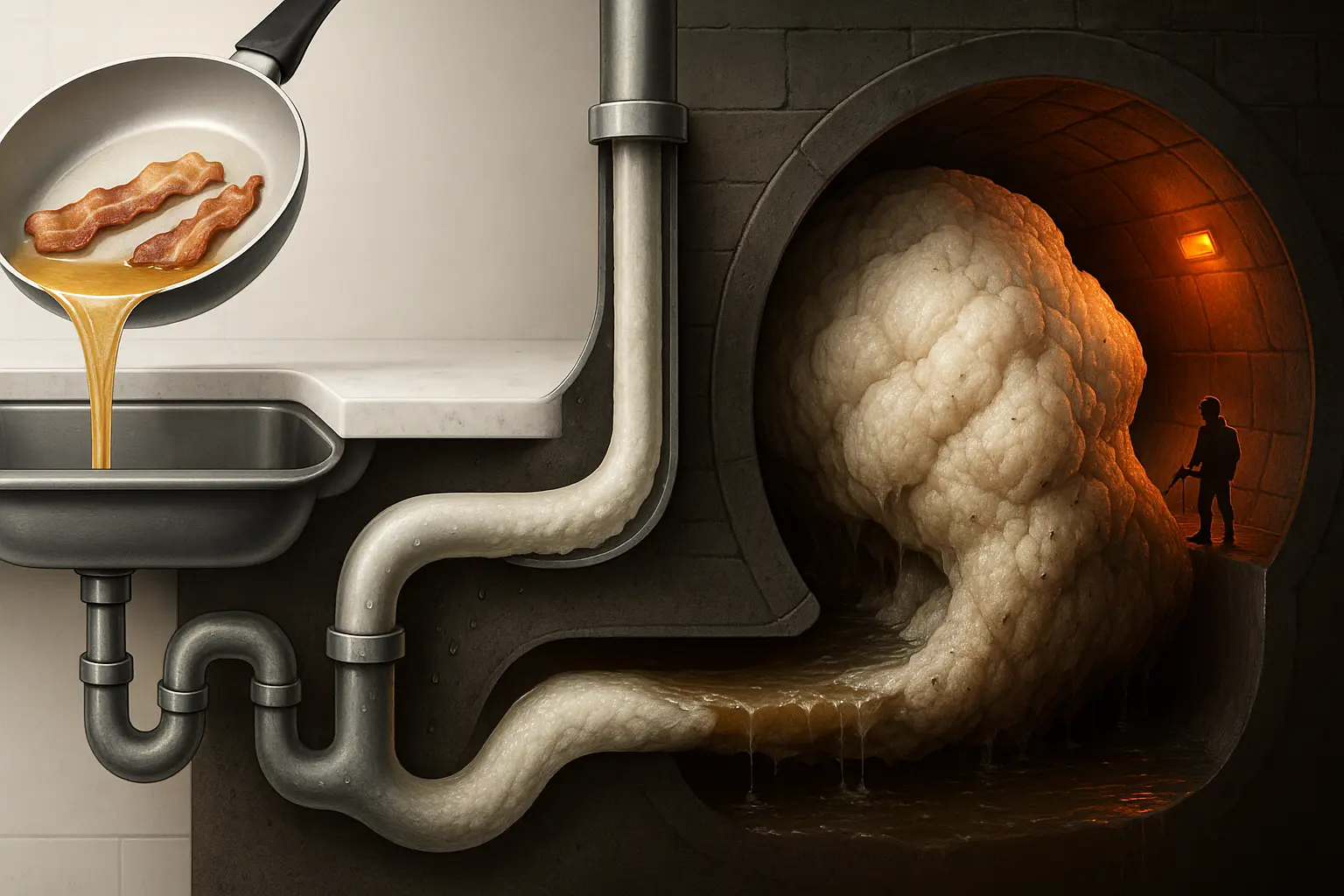Table of Contents
How grease attacks a pipe (science in plain English)
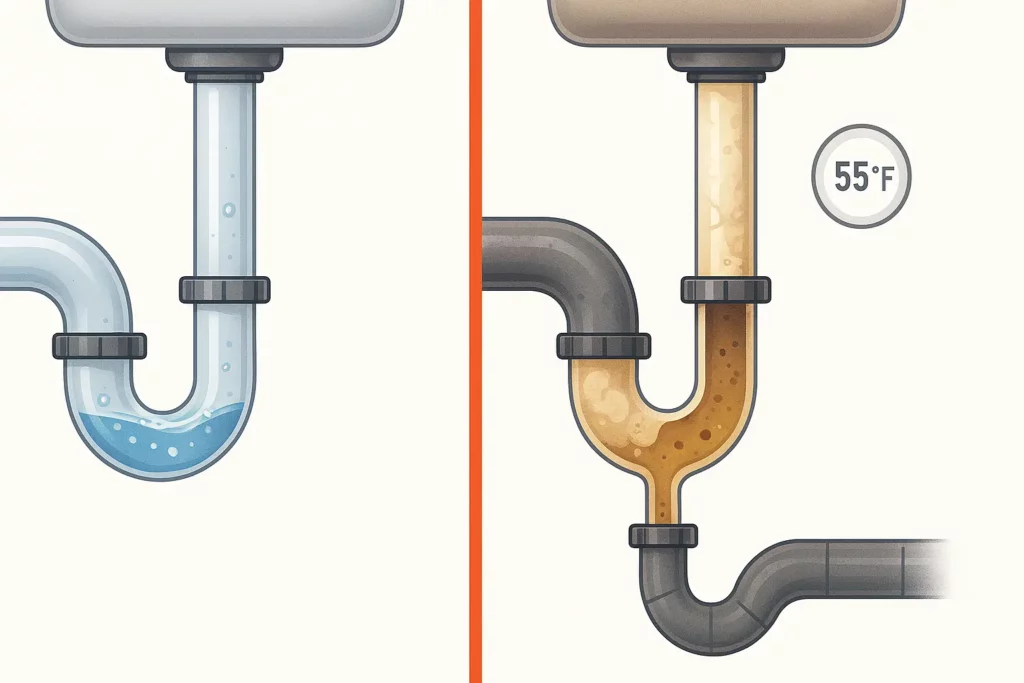
Hot bacon grease looks harmless, but inside a 55 °F pipe it cools, crystallizes, and glues itself to the walls. Each pour adds a new waxy coat until wastewater slows to a trickle. Running hot water or dish soap only moves the grease farther down, where it resolidifies and starts the cycle again.
From your kitchen to a citywide fatberg
• Home and restaurant grease blends in sewers, forming meter wide “fatbergs” that can weigh several tons.
• When mains clog, raw sewage can gush from manholes or back‑up into basements.
• Municipalities spend millions each year jetting lines and repairing pumps damaged by grease films.
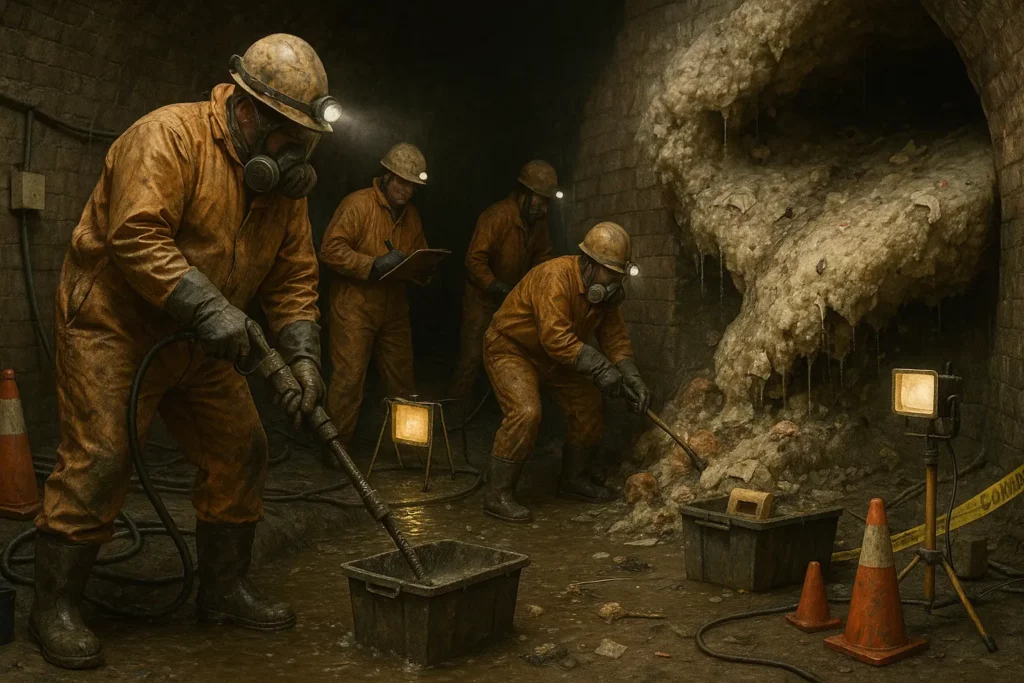
3 Step by step: how to dispose of cooking oil the right way
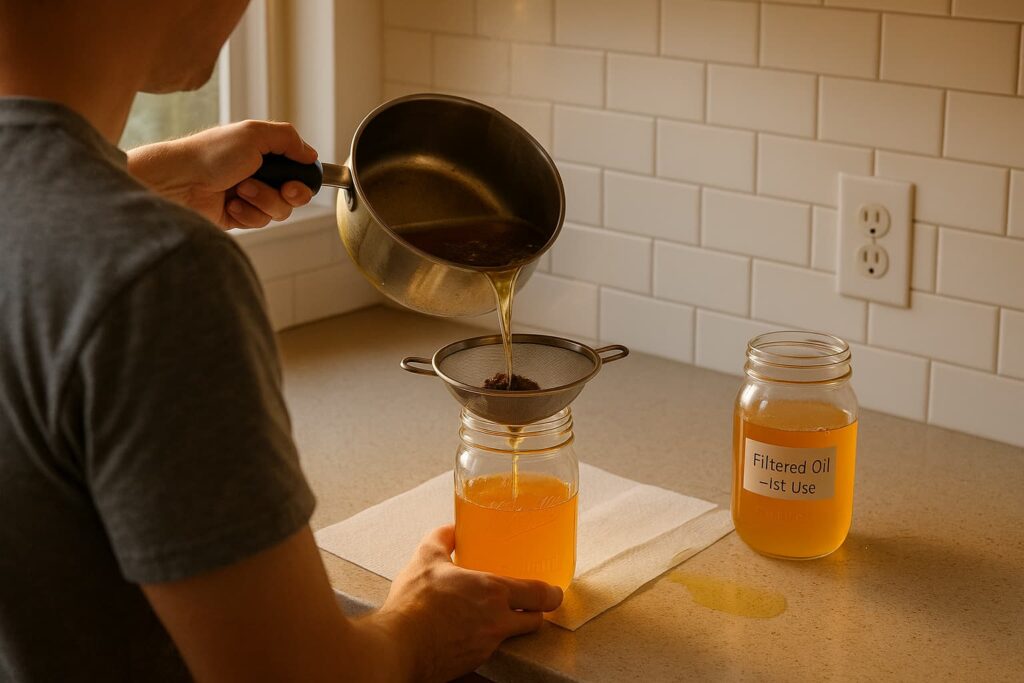
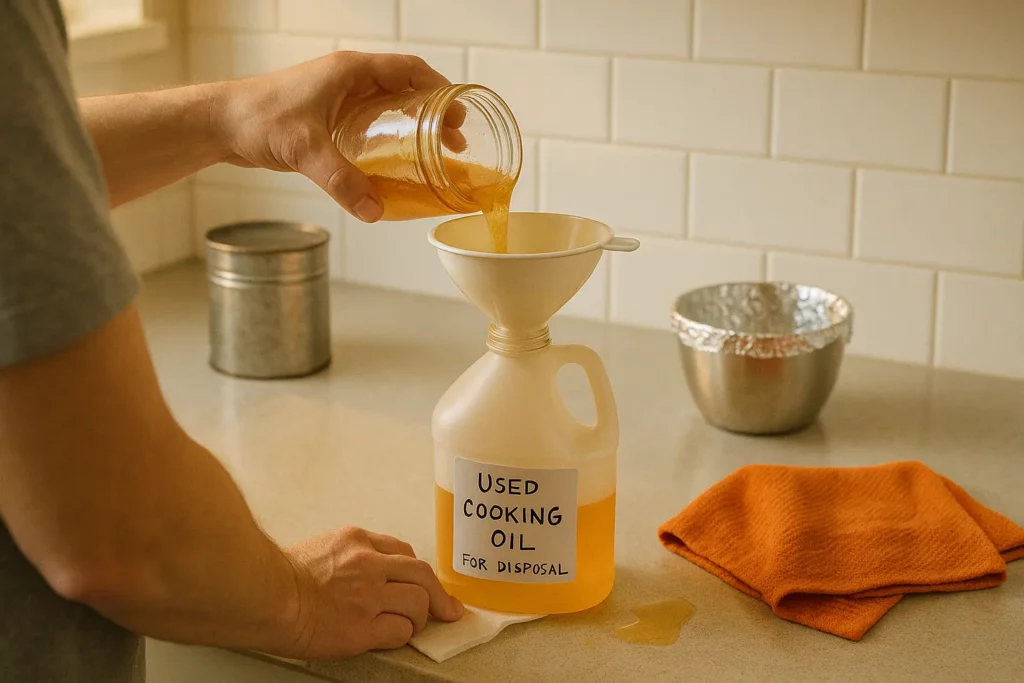
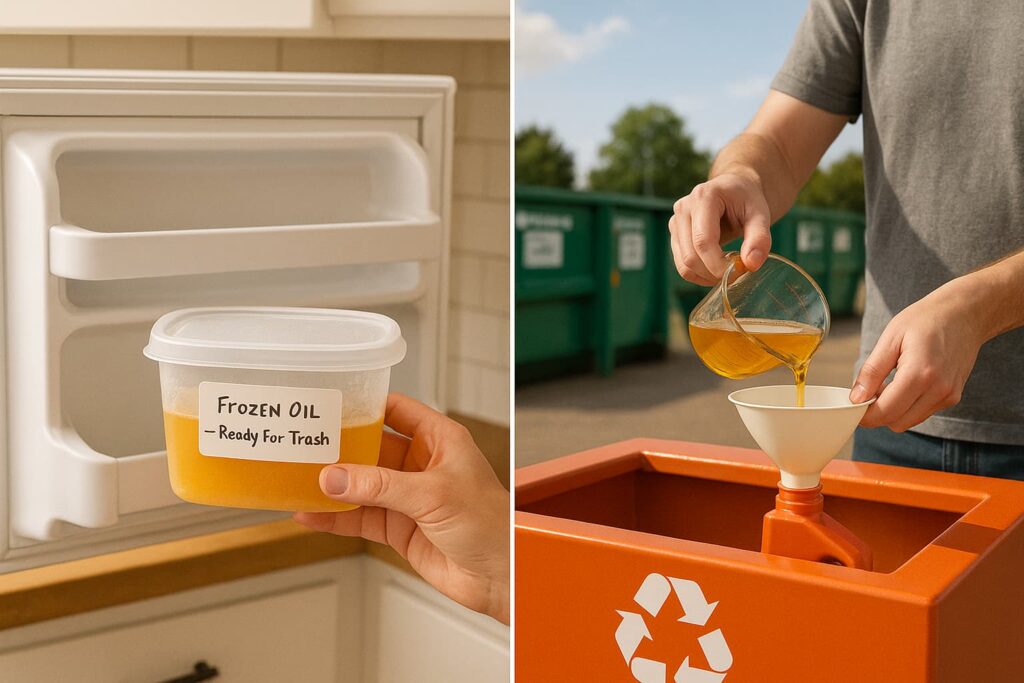
| Step | What to do | Why it matters |
|---|---|---|
| 1 | Let it cool in the pan or a heat‑safe container. | Safe handling; prevents burns. |
| 2 | Strain & reuse once or twice if the oil still smells fresh. | Cuts waste and cost. |
| 3 | Pour into a sealable container (coffee can, milk jug, foil‑lined bowl). | Contains leaks; keeps pests away. |
| 4 | Wipe the pan with paper towels before washing. | Removes residue that dishwater could rinse into pipes. |
| 5 | Trash or recycle • Freeze and toss with household garbage • Drop off at local cooking oil recycling site (check city listings) |
Myth‑busting FAQ
| Question | Truth |
|---|---|
| “Hot water keeps grease liquid long enough to clear the line.” | Only until it cools a few feet away; then it hardens again. |
| “Dish soap emulsifies fat, so it’s safe.” | Emulsion breaks in cold water; the fat sticks later. |
| “Vegetable oil is fine; only animal fat clogs.” | Olive, canola, even peanut oil form sticky films once cooled. |
| “Garbage disposals grind grease.” | They only shred solids; liquid fat slips through unchanged. |
Costs of ignoring the rule
• Average homeowner hydro‑jet bill: $200–$400 for the first hour.
• Fatberg removal in London (2017): 17‑ton blockage took nine weeks to clear.
• Utility surcharges: Cities pass cleanup costs to rate‑payers, raising water bills for everyone.
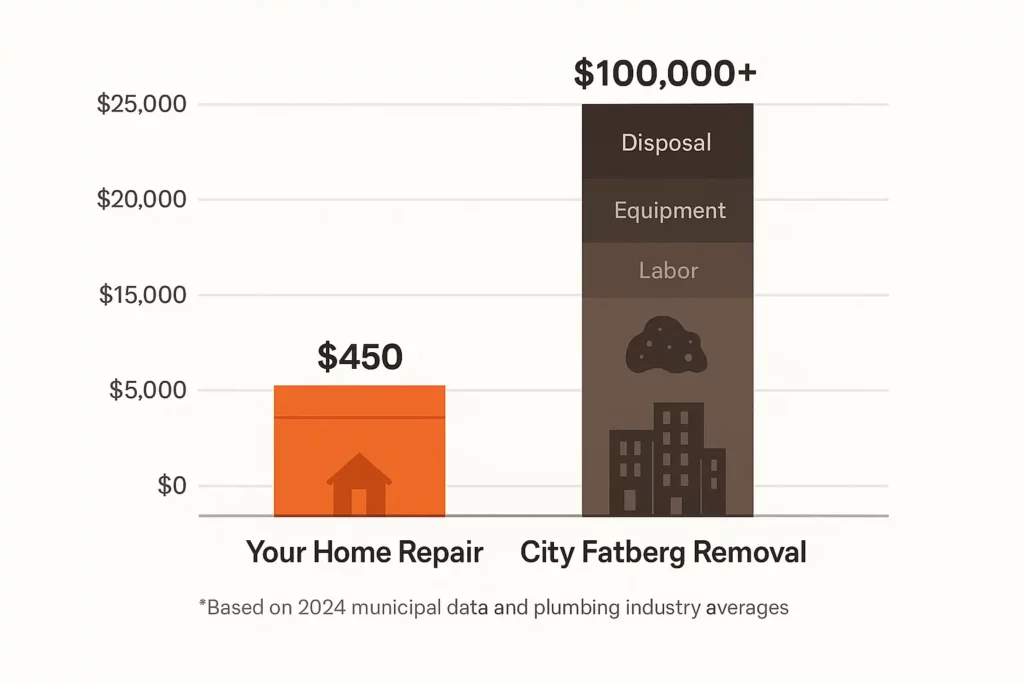
Quick reference cheat sheet for renters & students
Do
• Store a lidded “grease jar” under the sink.
• Keep cardboard, coffee grounds, or cat litter on hand as absorbents.
• Share the rule with roommates; one mistake clogs everyone’s drain.
Don’t
• Dump fryer oil, bacon grease, gravy, or even salad‑dressing rinses into the sink.
• Rely on chemical drain cleaners; they rarely dissolve solid fat and can corrode pipes.

